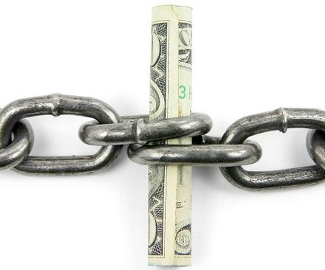 Hyperlinks don’t only provide your users with useful information that is not thoroughly discussed in your articles and content, but they also make your website more relevant to search engines. When ranking websites, search engines take into consideration the quantity and quality of links going in and out of your website.
Hyperlinks don’t only provide your users with useful information that is not thoroughly discussed in your articles and content, but they also make your website more relevant to search engines. When ranking websites, search engines take into consideration the quantity and quality of links going in and out of your website.
Google states on their page ranking guide that, “Google interprets a link from page A to page B as a vote, by page A, for page B.” Translation= you can get your website to rank higher if you learn how to use hyperlinks correctly.
The Art of External Hyperlinking: Send and Receive Votes
Even though inbound links (or backlinks) will help your site rank higher for search engines, the other side of the equation requires you to have a relevant website with useful information. There are websites with a high PageRank that don’t make it to the top results because of the amount of spam and useless links on their sites.
If you don’t want to become one of those sites, avoid adding links that point in no direction or that are irrelevant to your site and also watch the quality of your anchor text. A terrible way to hyperlink successfully is the following:
“To check out this amazing site I found, click here.”
The anchor text in this hyperlink is terrible as it does not specify what the user is going to find or where the link is heading. It is highly unlikely that visitors will click on your link as it is unattractive and does not seem useful. Search engines will qualify this as low quality votes from your website to another, and other websites will probably not want to be associated with your site or will not even notice that they are. In order to avoid bad quality hyperlinks make sure that your anchor text is attractive and that it is involved with the content of your site. A good technique is to add hyperlinks to sites that expand on relevant ideas included in your content:
“SEO experts know the importance of hyperlinking, good quality content and correct use of social media to make your site more relevant to search engines.”
The hyperlink in “hyperlinking” could direct your readers to this website in case you don’t want to expand on the topic, but still would like to provide information on it.
Internal Links: Why They Matter?
Search engines don’t allow you to vote for your own website to make it more relevant, so internal links might seem like a waste of time. However, that is not a reason to not have internal links and let us tell you why. When someone reads any content on your site they may look over it and take the information provided upfront, but if they realize that there is more information on topics of their interest on your site they will probably think your website is of good quality.
If you’re lucky and the visitor owns a website, this is the way to get hyperlinks heading your way, i.e. this is how you can get “votes” from others. Internal links also matter because they allow your users to explore everything on your site and it gives the sense that you care about your users and the quality of the information on your site; this is crucial for player retention.
Some Extra Advice
According The Economist, the new approach to hyperlinking is that anyone who owns a website should not include hyperlinks on the text in their article, but rather at the end in the form of a bibliography. They believe this is better because hyperlinks distract the readers and they can distract the reader and ask them to move away to another site. There is not a lot of research on this SEO technique yet, but we suggest you could experiment with what is the most efficient way to get your visitors to click on the hyperlinks on your site.
What are your thoughts on proper hyperlinking? Tell us in the comments below!